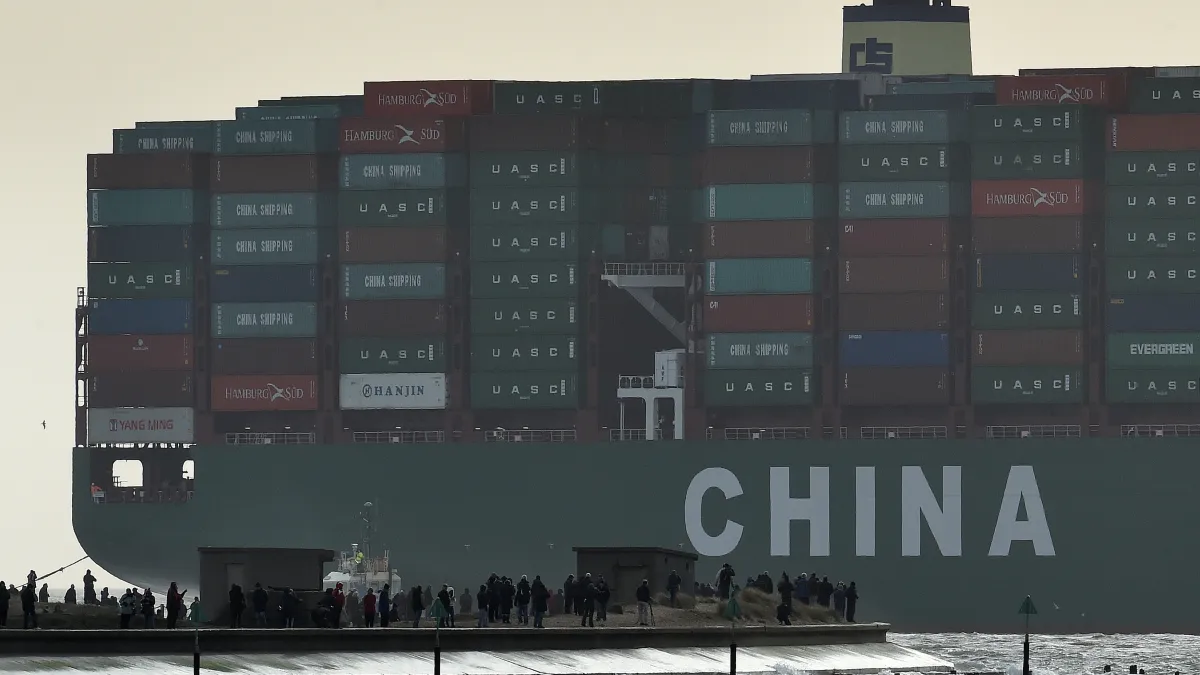
President Trump plans to increase his tariff on Chinese goods by 50 percentage points, raising it to a staggering 104% on virtually all imports from the manufacturing powerhouse, and the White House said Tuesday that the new levy would take effect at midnight tonight, as scheduled.
Trump says he is imposing the tariff in retaliation for a 34% tariff on U.S. goods imposed by China last week — which in turn was a response by Beijing to a new 34% tariff, on top of existing 20% tariffs, placed on Chinese goods by the U.S.
The huge increase imposed by Trump — coupled with China’s vow Tuesday to “fight to the end” in the burgeoning trade war and a statement by the White House that the president “will not break” — dimmed hopes for a quick resolution in the rapidly developing battle. Investors on Wall Street pulled the plug on an attempted stock rally, with the S&P 500 closing 1.6% lower on the day — and down 12% over the last four days.
Lawmakers have questions: In an appearance before the Senate Finance Committee Tuesday, U.S. Trade Representative Jamieson Greer defended the tariff program as lawmakers asked him to explain the meaning and purpose of Trump’s trade initiatives.
Greer said the tariffs were “already bearing fruit,” with dozens of countries seeking trade deals. “Nearly 50 countries have approached me personally to discuss the president's new policy and explore how to achieve reciprocity,” he said, adding that several countries have offered to reduce their own tariffs, including Argentina, Vietnam and Israel. (Earlier Tuesday, Treasury Secretary Scott Bessent put the number of countries seeking a trade deal at 70.)
Republican Sen. Thom Tillis said that from his perspective, it looks like “we’ve decided to begin a trade war on all fronts.” He asked Greer who in the Trump administration should be held responsible — his exact words were, "Whose throat do I get to choke?" — if the tariffs fail and end up raising prices and slowing growth, as many economists have warned they would.
“I wish you well,” Tillis told Greer. “But I am skeptical.’’
Sen. Ron Wyden, the senior Democrat on the committee, asked Greer to explain the plan behind the tariffs. “In the last week, the White House has been all over the map when it comes to these tariffs. There is no clear message about how they were determined, what they’re supposed to accomplish, how long they will be in place, whether they’re a negotiating tool or a move to try and cut the United States off from global trade and usher in a new era of 1870s-style protectionism.’’
Wyden also called on lawmakers to reclaim authority over tariff policy. “Donald Trump’s aimless, chaotic tariff spree has proven beyond a doubt that Congress has given far too much of its constitutional power over international trade to the executive branch,” he said. “It is time to take that power back.”
Legislative moves: Wyden, along with Republican Sen. Rand Paul, released a resolution Tuesday that would repeal Trump’s global tariffs by terminating the emergency Trump declared in order to exercise tariff authority.
“Tariffs are taxes, and the power to tax belongs to Congress—not the president. Our Founders were clear: tax policy should never rest in the hands of one person,” Paul said. “Abusing emergency powers to impose blanket tariffs not only drives up costs for American families but also tramples on the Constitution. It’s time Congress reasserts its authority and restores the balance of power.”
A bipartisan pair of senators, Republican Chuck Grassley and Democrat Maria Cantwell, introduced a bill last week that would require congressional approval of new tariffs imposed by the president. Under the terms of the proposed legislation, if Congress failed to approve the tariffs, they would automatically expire after 60 days. The bill is not expected to go anywhere, though. Senate Majority Leader John Thune made his opposition clear, saying, “I don’t think that has a future,” and the White House said Trump would veto it if it did reach his desk.